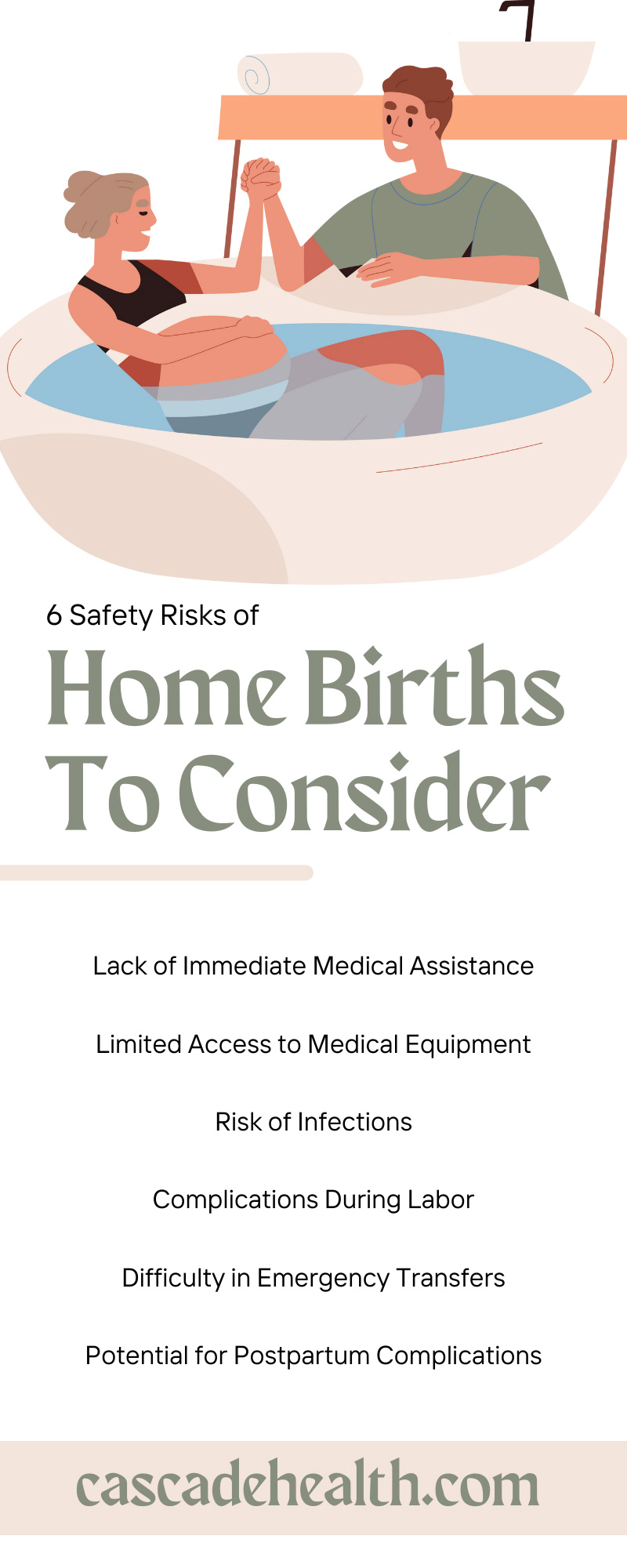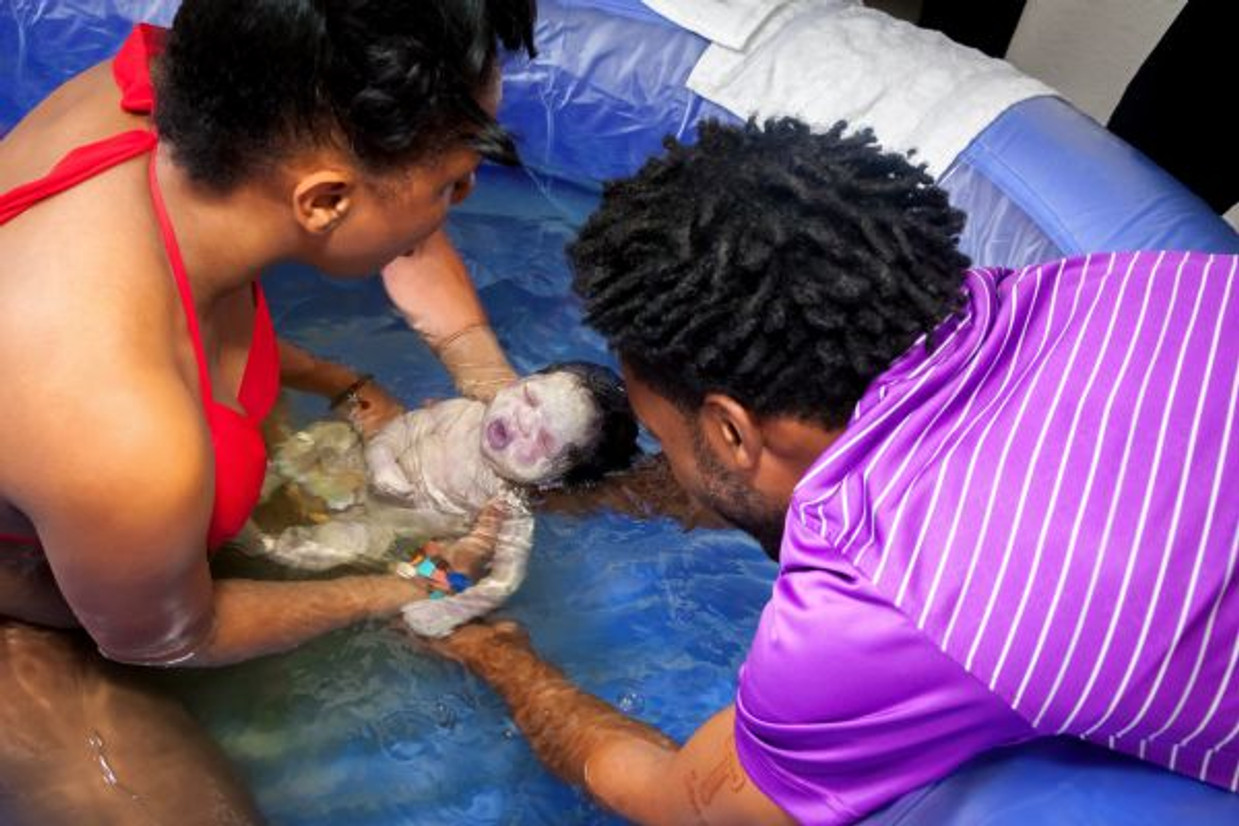7 Safety Risks of Home Births To Consider
Giving birth to a child is a monumental, life-changing experience. And with advancements in technology and information, more and more people are opting to take control of their birth experience and stay home. Staying home to give birth has shown great potential for low-risk patients, and the benefits highlight increased comfort measures, increased autonomy, and all the privacy one could ask for.
However, for every pro, there is a con—home birth is no exception. Understanding all the safety risks involved and taking them into consideration is a critical step before planning and executing a successful home birth. We take the time to deep dive into all these factors so you feel informed about the journey ahead.
Remember that not every benefit or safety risk is one-size-fits-all. We present this information in an educational manner so providers and patients feel prepared and informed about their options.
Introduction to Home Birth as a Choice
Childbirth is a unique experience, and every birth parent has the right to choose where and how they want to give birth. While hospitals remain the most common choice, home births have seen a rise in popularity. However, home births do come with their own set of risks that prospective parents need to consider.
Weighing these risks with a primary care provider or the overseeing obstetric care provider is essential, as some patients are considered low-risk and others high-risk. While everyone should make their own choices, it is imperative to seek professional guidance before planning a home birth for the health and well-being of both the mother and infant.
Understanding the Risks of Home Births
Now, we will explore the various safety risks associated with home birth and highlight, in detail, why these factors matter. As we mentioned above, these risks are not one-size-fits-all. Some expecting parents may never experience a complication, while others may experience one or more.
Lack of Immediate Medical Assistance
One of the most significant risks of home births is the lack of immediate access to medical assistance. In cases of emergency, time is of the essence. Hospitals have a range of readily available medical professionals on hand—including obstetricians, anesthesiologists, and pediatricians—who can intervene swiftly if complications arise.
During a home birth, keeping the nearby medical team informed is advisable so if any issues arise, a transfer to the hospital is quick and easy. Additionally, hiring a midwife and a doula is advantageous so a qualified care team can assist the birth and reduce the risk of complications.
Limited Access to Medical Equipment
Hospitals are equipped with advanced medical equipment, such as fetal monitors, oxygen, and devices for resuscitation, that can be crucial in certain situations during childbirth. At home, access to these lifesaving tools may be limited or unavailable, regardless of the on-hand care team. Midwives carry limited medical tools, and doulas are not legally allowed to medically intervene.
Risk of Infections
Homes are not typically as sterile as hospital environments, increasing the risk of infections during and after childbirth. This risk applies to both the mother and the newborn and can lead to serious health complications. Medical providers should discuss potential infection risks with each patient expressing interest in home birth.
Complications During Labor
One of the most significant safety risks to consider before having a home birth is labor complications. Complications during labor, such as a breech baby or prolonged labor, can pose significant risks during home births. These situations often require medical interventions such as cesarean sections, which are not possible in a home setting. Ultrasound monitoring can help providers understand the baby’s positioning as the days close on pregnancy, letting providers give patients an informed understanding of their risk of complications.
Difficulty in Emergency Transfers
In case an emergency arises during a home birth, transferring the mother to a hospital takes time. Delays could prove dangerous, particularly in situations in which every second counts, such as with postpartum hemorrhaging or a baby requiring immediate neonatal care. Keeping the nearby medical team informed of the home birth can help, but having a certified nurse midwife oversee the home birth is the first line of defense and communication should a transfer become necessary.
Potential for Postpartum Complications
Postpartum complications, such as severe bleeding or postpartum depression, may be harder to manage at home. In a hospital setting, medical professionals can diagnose and treat these conditions promptly, minimizing potential risks to the mother. While home births can offer a familiar and comfortable environment, expecting parents must understand these risks.
Adequate planning and preparedness and having a trained professional present can help mitigate some of these concerns. However, the availability of comprehensive medical care and specialized equipment in a hospital setting plays a crucial role in ensuring the safety and well-being of both the mother and child.
Mitigating the Risks
While these risks may seem daunting, certain steps can help mitigate them. Hiring a certified midwife or nurse, ensuring access to a nearby hospital, and having a well-thought-out birth plan are all ways to increase the safety of home births.
However, even with these measures in place, home births are not without risk. Therefore, thorough research and consultation with healthcare professionals are vital before making a decision. Hiring a certified nurse midwife and trained doula and having your surrounding support network educated can also help mitigate the risks, increasing the odds of a successful, healthy home birth.
Closing Thoughts With Cascade Health Care
The choice of where to give birth is a deeply personal one and should be made after careful consideration of all the benefits and risks. Home births can offer a unique and intimate experience, but they also come with unique challenges. Cascade Health Care is a reputable medical equipment supplier that believes in the importance of understanding these risks and preparing accordingly for a safe and successful childbirth experience. We encourage all prospective parents to consult with their healthcare providers and consider the availability of all necessary home birth supplies. With proper preparation, education, and access to information, providers and patients have increased odds of successful home birth experiences for both mothers and babies.

Recent Posts
-
Tips for Maintaining Milk Supply When Returning to Work
Returning to work after welcoming a baby introduces logistical, emotional, and physiological challen
-
9 Items EMTs Should Have Stocked for Prehospital Deliveries
Prehospital deliveries rarely announce themselves with perfect timing. One minute you take a routine



